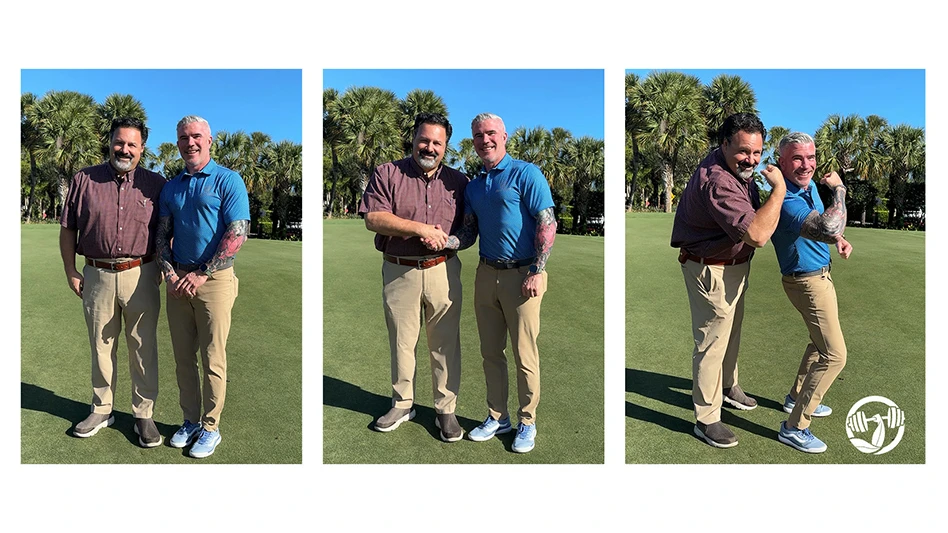|
|
Golf course superintendents often think, talk and fret about the attitudes of their employees. They seek employees who are motivated, productive, dedicated and loyal. Superintendents’ attitudes and the cultures they develop dramatically impacts their success attracting and retaining motivated, productive, dedicated and loyal employees. Consider the following:
• I recently visited a superintendent who was seeking my advice because he was having little success attracting and keeping high-quality assistant superintendents. He told me there were few good candidates. Those who had the skills were too young, didn’t want to work hard and spent too much time partying. When he was able to hire good candidates, they didn’t stay more than a year or two.
• During a seminar I was teaching, a golf course superintendent proclaimed to everyone in the seminar that there were 36 superintendents in the United States who were assistant superintendents with him. During later conversations with him, he said he didn’t have problems hiring assistant superintendents but had difficulty choosing one from the several superbly qualified candidates.
To better understand how your attitude impacts employees’ attitudes, contrast two approaches to employees, sometimes called paradigms. I’ll call them control and quality. The control approach is a traditional approach to management built around the superiority of the manager and the need for the manager to control how everything is done. The quality approach emanates from the quality movement (Total Quality Management, Six Sigma, Baldrige, etc.) and modern human resource management practices and focuses on every member of the work force working together to produce quality products and services. Consider your roles with your employees – leader, manager, supervisor, trainer, coach, mentor, teacher – by focusing on two – leader and supervisor.
We want to be a part of a winning team, so consider the following:
• Identify the greatest team you were a member of – sports, work, volunteer, etc. Why did you identify the team as your greatest? The answers usually revolve around a common goal, direction, mission or vision.
• The greatest team I led was during my time on the faculty at Cornell University. Through a New York State-funded project to improve the competitive position of the state’s dairy farmers, we assembled a team of eight professionals with a common vision to improve the management skills of the dairy-farm managers. The energy, passion and synergy from the common vision led to focus, creativity, productivity and a winning team.
• Think about athletic teams at all levels. Do the teams with the most talented players always win? Talent is important, but without commitment to team goals and engagement in team success, most athletic teams fall short of their expectations.
Quality leaders develop a winning culture. Everyone in the work force is engaged in course success. In this culture, employees don’t simply complete tasks. Instead, they exceed expectations when completing tasks to contribute to course success and seek additional opportunities to contribute to course success. Here are some suggestions for developing a quality culture:
• Clearly articulate the vision, directions, values and goals you have for the course. Share these with your employees. Utilize the vision, direction, values and goals in all training, directions, feedback and day-to-day discussion.
• Seek input and ideas from your employees. Involvement in a winning team goes both ways. You need to seek their ideas and passion.
• Provide copious amounts of high-quality feedback about how the team and each individual are doing. Your employees will appreciate knowing they and the team are or aren’t winning.
Quality supervisors understand and develop the unique talents, skills, interests and attitudes of each employee. Consider the following:
• I use to play the Robert Trent Jones Golf Course in New York regularly and knew the superintendent. The 11th hole was a beautiful par 4 with a narrow, tree-lined fairway leading to a large green protected by bunkers and closely surrounded by trees. The golfers loved the challenge, but the superintendent hated the hole because the shade made keeping the green in great condition almost impossible.
• After a presentation at a state landscape and greenhouse conference, a man named George asked me if he could tell his story. George worked for a landscaper for 23 years. Looking back, he realized he was a terrible employee. He did the minimum and used all of his vacation and sick leave. He also said he received no feedback or encouragement from his employer. Because that landscaper went out of business, George joined his current employer. This landscaper gives him training, encouragement and feedback. George is now passionate about his work and seeks to succeed in every way.
What does the 11th hole have to do with supervision? People, like golf holes, are different. As the uniqueness of the 11th hole was integral to the golf course, each individual’s uniqueness is integral to the success of a winning team. Quality supervisors are masters at understanding what makes their employees tick. They build on that knowledge to create task assignments that enable employees and the course to succeed. The change in George wasn’t anything other than leaving a losing team and joining a winning one.
You can be a leader of a winning team and a great supervisor. Remember employees’ attitudes are impacted dramatically by your attitudes and by the culture you create among the work force at your course. So:
• Hire great people;
• Develop the uniqueness of each employee;
• Respect the capabilities of your employees;
• Provide positive and negative feedback and redirection; and
• Engage everyone in course success. GCN
Robert A. Milligan, Ph.D., is professor emeritus from Cornell University and senior consultant with Madison, Wis.-based Dairy Strategies. He can be reached at 651-647-0495 or rmilligan@trsmith.com.

Explore the January 2006 Issue
Check out more from this issue and find your next story to read.
Latest from Golf Course Industry
- Toro continues support of National Mayor’s Challenge for Water Conservation
- A different kind of long distance
- Golf Construction Conversations: Stephen Hope
- EnP welcomes new sales manager
- DLF opening centers in Oregon, Ontario
- Buffalo Turbine unveils battery-powered debris blower
- Beyond the Page 66: Keep looking up
- SePRO hires new technical specialist







